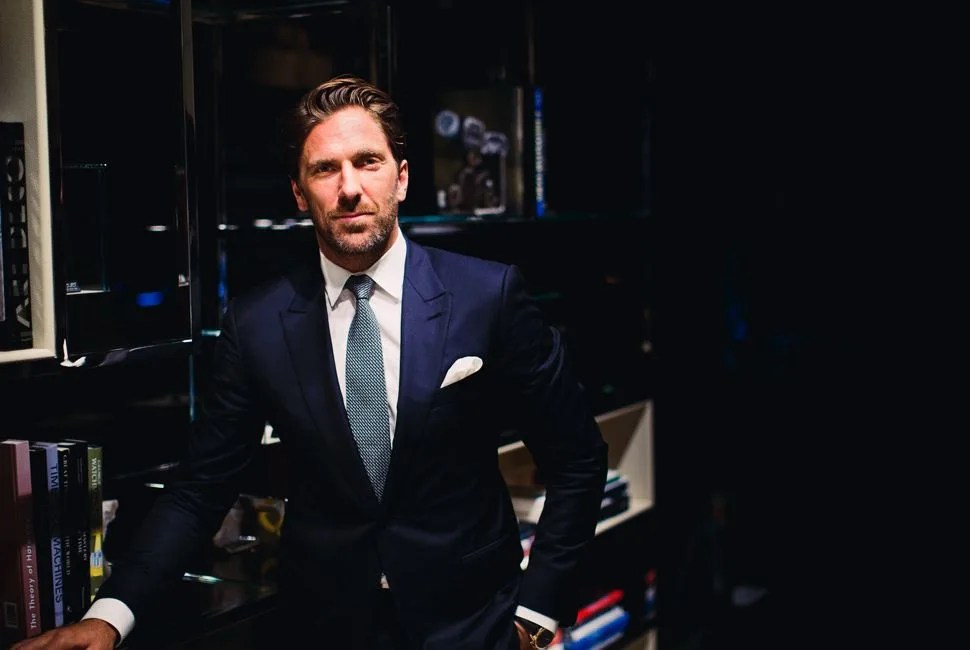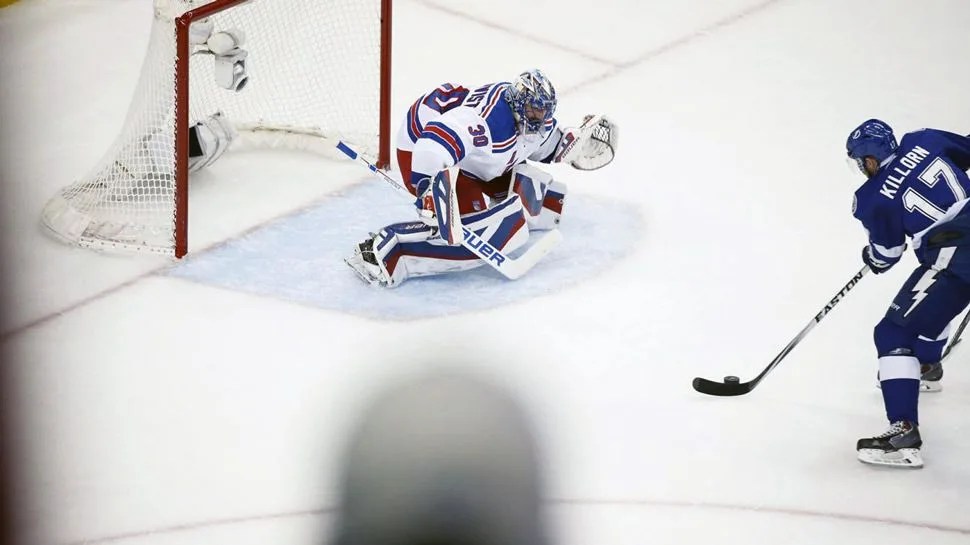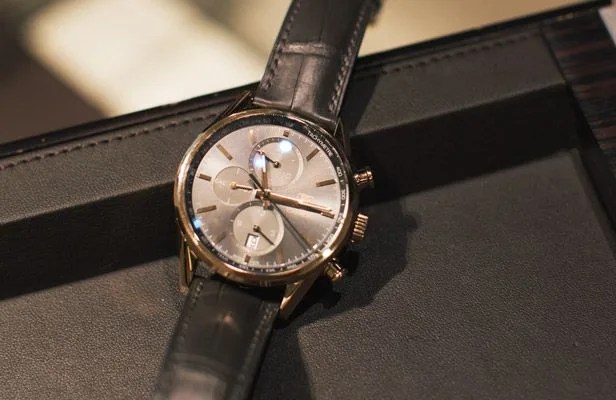There was a moment, in Game 7 of the Eastern Conference Finals between the Lightning and the Rangers, when it seemed that Henrik Lundqvist had become a moving, breathing wall. With 7:45 remaining in the first period, a deflected shot fluttered toward the net over Lundqvist’s left shoulder. He swiveled his head, trying to locate the puck, but his eyes scanned only empty air. And yet, despite not seeing, his gloved left hand somehow knew to slash upward, to reach behind him, and to knock the puck just over the top of the net.
In the second period, Lightning defenseman Jason Garrison, so wide open that it’s fair to believe he was lonely, caught a pass with his stick and flicked it with finality toward the far top corner of the net from point-blank range. Lundqvist’s glove flashed upward. Garrison glided by, frozen like Lundqvist hadn’t been, staring at the spot where his puck should have hit the back of the net. Going into the third period it was 0-0, Lundqvist having denied everything but an act of god. Then, two minutes into the third, a mundane backhand shot slipped between Lundqvist’s legs and slid into the back of the net. It felt wrong, like the error that ruins a perfect game. The Lightning scored again, with eight minutes remaining. Henrik kicked the puck with his skate in disgust. The Rangers, who had the best regular season record in the NHL, were out.
The goalie position in the NHL is a hybrid gymnast and ballet dancer, on skates, in a fat suit made of padding, who uses every inch of his body plus a large catching glove and a wide hockey stick to refuse the best-skating, most fantastic goal scorers in the world. Lundqvist is considered by most to be the best in the league. The 33-year-old Swede began playing hockey professionally at the age of 18; by the time he was 23 he’d been awarded the Best Goaltender and Best Player trophies and voted MVP by his fellow Swedish league players.
“If you look around the room, I’m one of the guys that — well, I stay quiet. A lot.”
In his rookie season with the Rangers in 2006, he was a finalist for the Vezina Trophy, given to the NHL’s best goaltender. Since then, he’s only heightened his spellbinding style of aggressive, consistent play, making finalist for the Vezina again in 2007 and 2008 and finally winning it in 2012. He is the only NHL goaltender in history to win 30 or more games in his first seven seasons. Before that loss against the Lightning, he was a perfect six for six in playoff Game 7s — the deciding game of a series, where the winner goes on and the loser goes home. In all but one of his 10 seasons with the Rangers, his team has made the playoffs. He’s also been voted one of the 100 most beautiful in the world by People magazine, plays in a rock band, appears in Tag Heuer ads, and runs his own philanthropy organization promoting child and familial health.
With the Rangers, he’s never won a Stanley Cup. And between this season’s loss to the Lightning and last season’s loss to the Los Angeles Kings in the finals, it’s clear that being stymied hurts like hell. When someone asks about how hard those loses were, he keeps up his smile, nods in sad agreement — without bitterness — and speaks plainly and politely about how the team (“we”) played flat when it mattered. He offers no excuses, like you’d expect from a top player, a team leader.
When Lundqvist speaks, you catch yourself leaning in slightly. He’s quiet, his voice stays even and measured, and he smiles at all the right times, genuinely. He goes out of his way to introduce himself if he hasn’t been introduced yet. It is hard to square his power on the ice — billowing out of the goal crease to face down oncoming monsters, glove flashing like a blade to swallow their slap shots — with such an even-keeled man. But talk to him, even for 20 or 30 minutes, and you begin to get the picture: Henrik Lundqvist practices his very own version of ice-cold zen.


